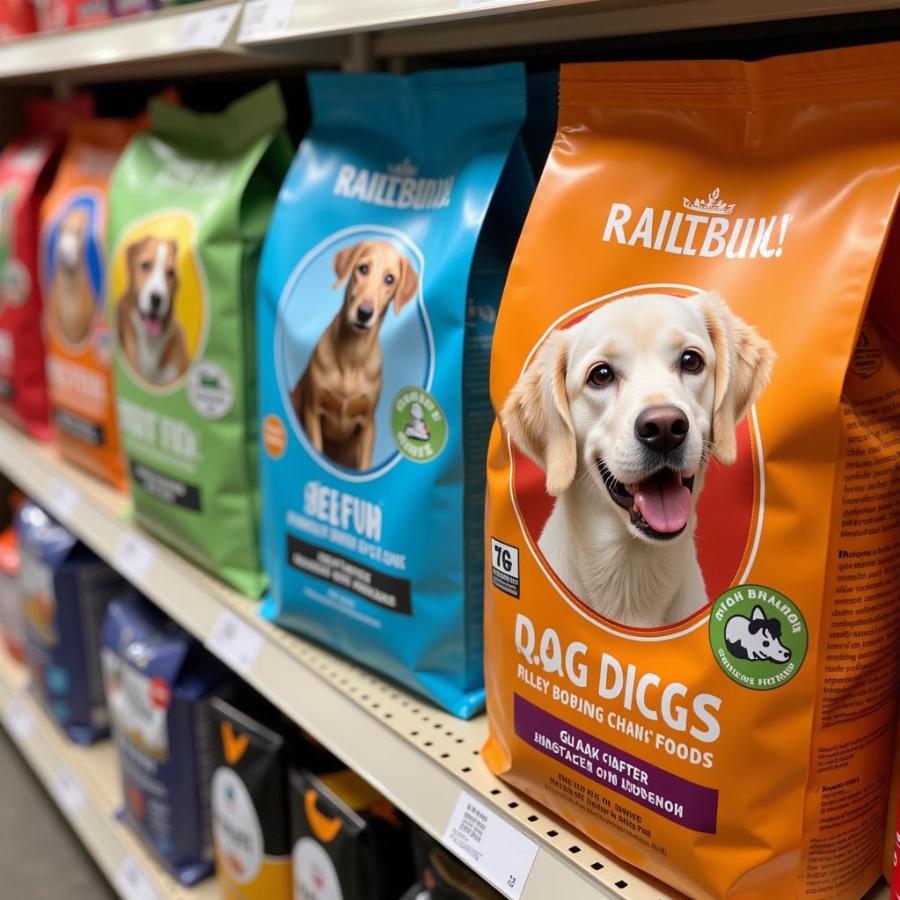Chicken is a popular ingredient in many commercial dog foods. It’s a good source of protein and relatively inexpensive. However, chicken is also one of the most common food allergens for dogs.
If your dog is allergic to chicken, it means their immune system overreacts to proteins found in chicken meat. This reaction can manifest in a variety of ways, from mild skin irritation to severe gastrointestinal upset. Recognizing the signs and knowing how to manage this allergy is essential for any dog owner.
Understanding Chicken Allergies in Dogs
Just like humans, dogs can develop allergies at any point in their lives. While genetics can play a role, there’s no way to fully predict if your dog will develop a chicken allergy. Here’s what happens: when a dog with this allergy consumes chicken, their immune system releases histamines and other chemicals that trigger the allergic reaction.
Signs and Symptoms of Chicken Allergies in Dogs
Chicken allergies in dogs can present themselves in a number of ways. Some common signs include:
- Skin Problems: Itchiness, scratching, hot spots, hair loss, and recurring ear infections can all be signs of a food allergy, with chicken often being the culprit.
- Gastrointestinal Issues: Vomiting, diarrhea, gas, and bloating can occur as a result of an adverse reaction to chicken.
- Respiratory Problems: While less common, some dogs may experience coughing, sneezing, or difficulty breathing as a symptom of a chicken allergy.
Diagnosing Chicken Allergies
If you suspect your dog might have a chicken allergy, a visit to the veterinarian is in order. They will likely recommend an elimination diet as the gold standard for diagnosis. This involves feeding your dog a novel protein diet – one with a protein source they’ve never had before – for several weeks to see if their symptoms improve.
Managing Chicken Allergies
The most effective way to manage a chicken allergy is to avoid feeding your dog any food containing chicken. This means carefully reading labels and choosing foods that utilize alternative protein sources.
- Choosing Chicken-Free Dog Food: Look for dog foods that feature novel proteins like fish (salmon, whitefish), venison, kangaroo, or insect protein.
- Homemade Diets: If you’re considering a homemade diet for your allergic dog, consult with a veterinary nutritionist to ensure it’s nutritionally complete and balanced.
- Treats & Chews: Be mindful of treats! Many popular treats contain chicken or chicken flavoring. Opt for single-ingredient treats with alternative proteins.
 Different dog food bags
Different dog food bags
Living with a Chicken-Allergic Dog
Having a dog with a chicken allergy may require a bit more attention to their diet, but with careful management, they can live a happy and healthy life. Remember to:
- Inform Everyone: Make sure everyone who cares for your dog knows about their allergy and what foods to avoid.
- Read Labels Carefully: Double-check ingredient lists even on familiar products, as formulas can change.
- Carry Safe Treats: Always have chicken-free treats on hand for training and rewards.
Beaut Dogs: Your Partner in Canine Care
Beaut Dogs is dedicated to providing dog owners with reliable and comprehensive information about the canine world. For any questions or concerns about your dog’s health and well-being, contact our team at [email protected]. We’re here to support you in giving your furry friend the best possible care.